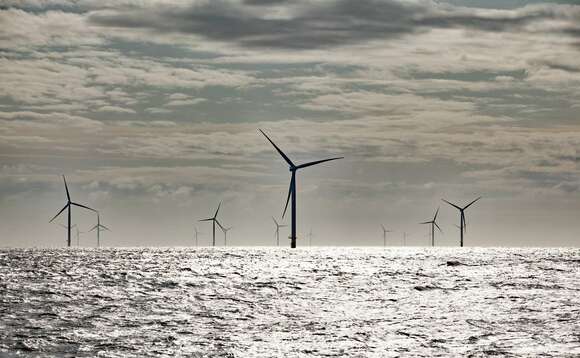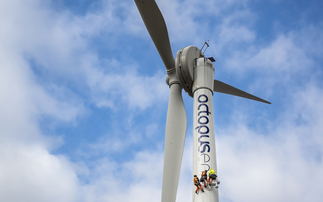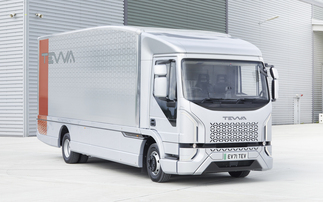Hornsea One Offshore Wind Farm / Credit: Orsted
Shell reaches agreement to co-develop the Western Star wind farm with Simply Blue Group, as Scotwind consortium announces plan for research into environmental impact of floating turbines
Shell has agreed to acquire a 51 per cent share in a floating wind project off the west coast in Ireland, the oil and gas giant yesterday announced.
The company has entered into a second partnership with 'blue economy' developer Simply Blue Group to co-develop the Western Star floating wind farm in the Atlantic Ocean.
The deal, financial details for which were not disclosed, builds on a previous agreement between the two companies to jointly develop the Emerald floating wind project off the south coast of Ireland.
The Western Star Joint Venture is to be developed by Simply Blue Group personnel and Shell floating wind experts and aims to build 1.35GW of floating wind capacity, enough to power over one million homes in Ireland.
"There is tremendous wind potential off the West Coast of Ireland and Simply Blue Group are delighted to partner once again with Shell to jointly develop the Western Star project," said Hugh Kelly, co-founder and chief commercial director of the Simply Blue Group. "The project will utilise floating offshore wind technology to produce zero-carbon electricity and will greatly help Ireland progress towards a green energy future with domestically sourced sustainable electricity delivering both environmental and economic benefits to the entire country."
The first phase of the project aims to develop 300MW-450MW capacity, which could include between 15MW and 18MW turbines, the companies said. The second phase would see the installation of a further 700MW-900MW capacity of floating offshore wind power.
Floating wind technology allows turbines to be located up to 60km offshore and in seas that are up to 100m deep, lessening the visual impact of the wind farm on coastal communities and placing the farms in an area of higher and more reliable wind energy potential.
The Western Star project could create hundreds of jobs in the local supply chain, according to the companies, through the installation and deployment of turbines and long-term operations and maintenance.
Commenting on the announcement, Hessel de Jong, general manager Europe for offshore wind at Shell, said: "Shell has a clear ambition to be a net zero emissions energy business by 2050, in step with society. We aim to provide more renewable power to consumers and businesses alike. Working alongside coastal communities to create shared value is key to success for both the Western Star floating wind project and the previously announced Emerald project, which is why we have chosen to work with Simply Blue Group."
The news comes in the same week as the Scotwind consortium currently bidding for offshore wind leases for floating wind projects in Scottish waters announced it has linked up with the Scottish Association for Marine Science (SAMS) to investigate the potential effects of floating wind developments on the marine environment.
The consortium members - Ørsted, Falck Renewables, and BlueFloat Energy - said it was discussing a range of potential future research projects that could proceed if the consortium's ScotWind bids are successful. They range from investigating how fishing interests and offshore wind can work together to studies into how fish, marine mammals, and seabirds interact with floating offshore wind farms.
"Given SAMS' wide research portfolio, we have an interest in contributing to the resolution of several data gaps in floating offshore wind research," said Mike Spain, head of SAMS Enterprise. "Collaboration with Falck Renewables, Ørsted and BlueFloat Energy will allow for some of these issues to be explored in detail, which would be of great benefit to the wider sector and to other stakeholders."
Duncan Clark, head of region UK at Ørsted, said: "The potential for generating power from floating offshore wind as we move towards a net zero world is immense. With all new technology it is vital to ensure that it is carefully designed with the environment in mind and that we fully understand any effects it might have on the marine ecosystem and how to avoid and mitigate them. This work with SAMS aligns with Ørsted's strong commitment to protect biodiversity, having announced earlier this year our ambition to deliver a net-positive biodiversity impact from all new renewable energy projects we commission from 2030 at the latest."
Future studies could also focus on increasing the role of marine robotics in collecting data before and after the construction of floating offshore wind farms at remote sites, the companies said.







